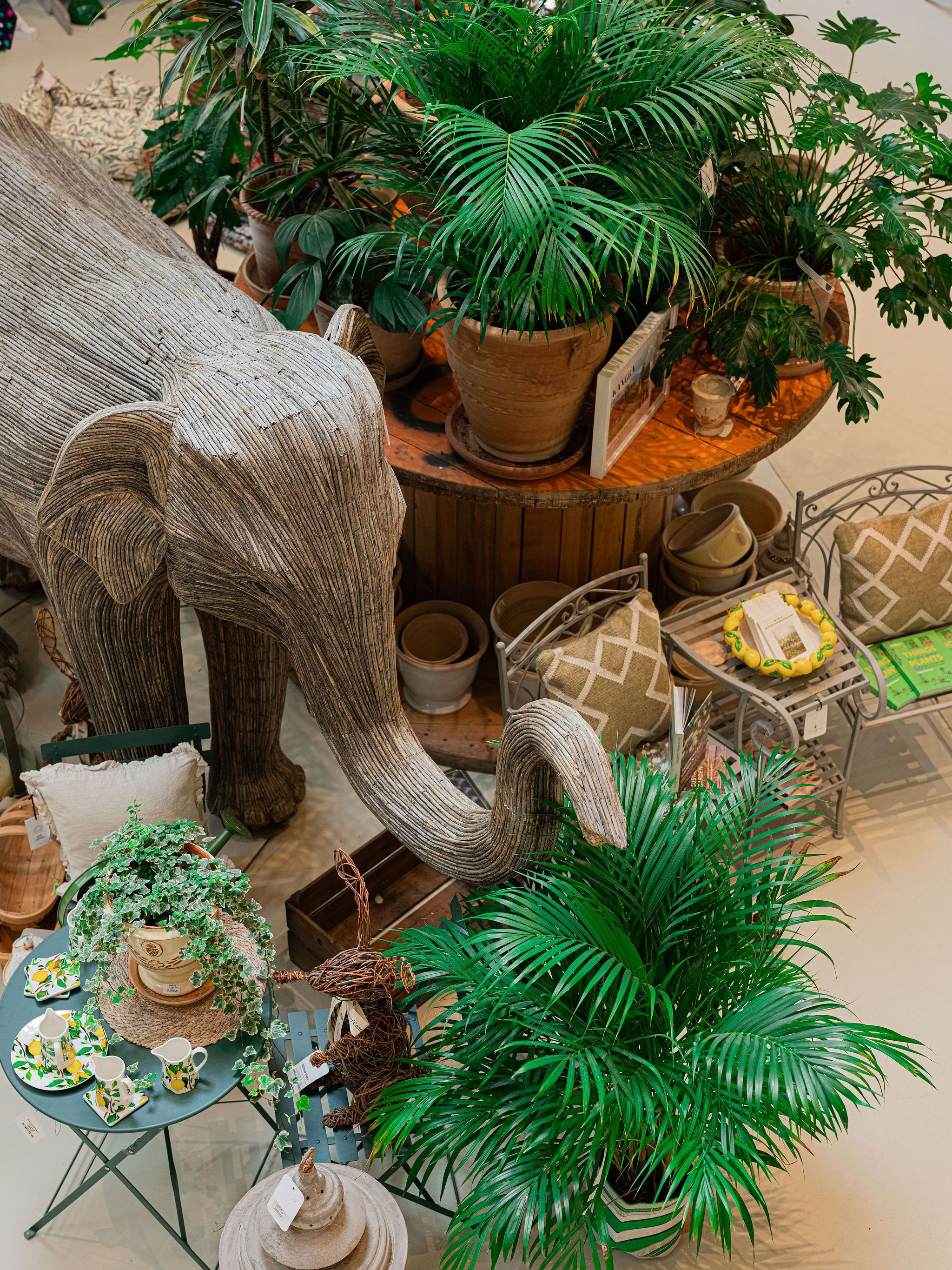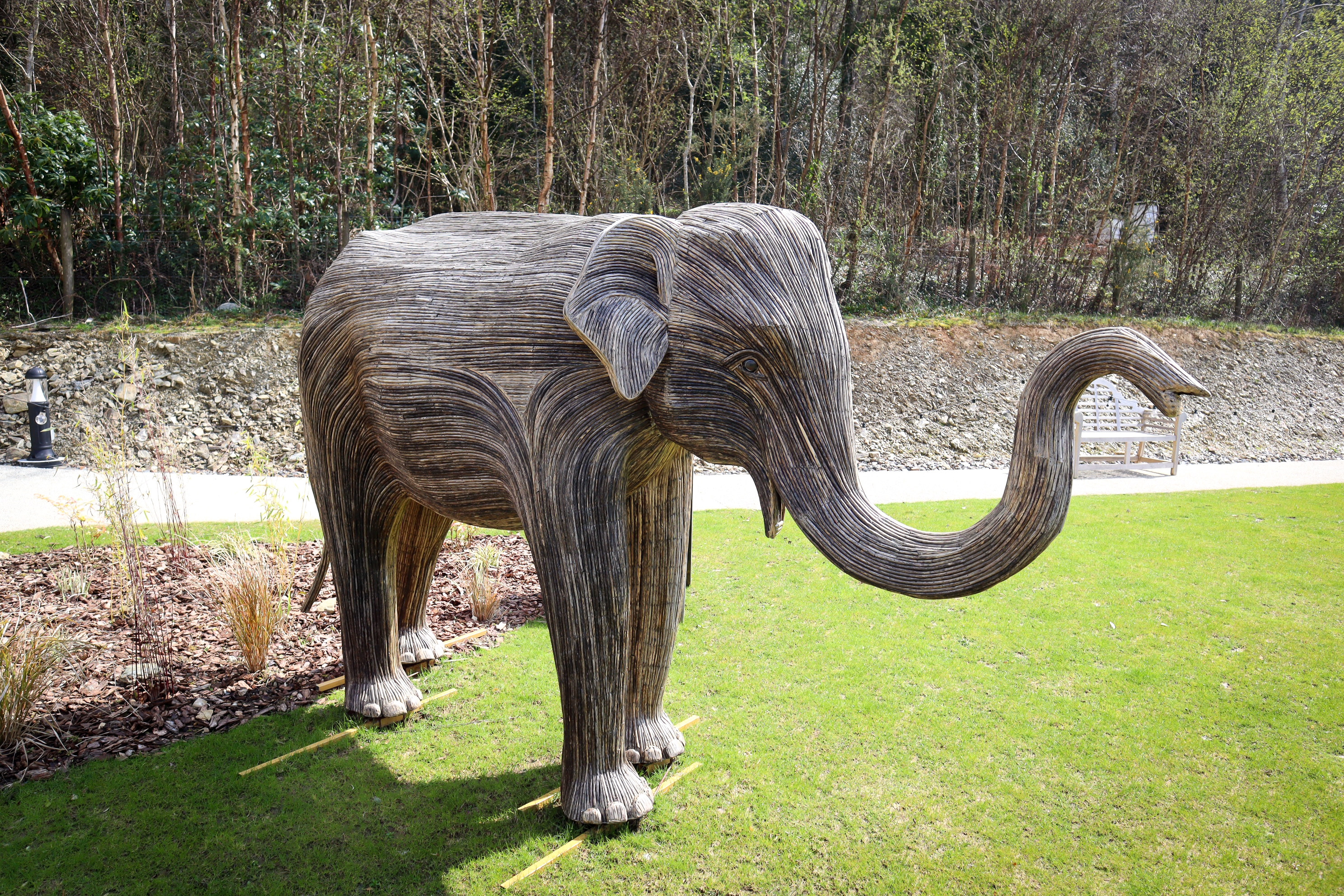
Stories
Kangra
Coexistence or no existence. There are 455 people per square kilometre in India, compared with 270 in the UK.
When you arrive at the Nursery and walk into our main entrance, you will be greeted by Kangra in the main atrium. She is one of a herd of 125 life-sized elephants made in an artists’ collective in the Nilgiri Mountains, an area of Tamil Nadu in Southern India. Each elephant is modelled on a real-life animal, and Kangra is an adolescent female, so not quite fully grown. We don’t know for sure why she got her name. Possibly because Kangra represents thought, intuition and wisdom. Or possibly she is named after Kangra in the very north of India, where the name means “town of snow-laden peaks”. The elephants are made using dried stems of Lantana camara fixed to a steel frame. Lantana may be familiar as a bedding plant in the UK, but in warmer climates it has become a widespread and troublesome invasive species where it threatens local ecosystems, reduces biodiversity and is poisonous to some animals.

The herd of 125 elephants was made over a period of five years, and arrived in England for display in the Royal Parks and other London locations. Unfortunately the pandemic disrupted these plans and Queen Camilla (then Duchess of Cornwall) arranged for the elephants to be fostered across the countryside in gardens and properties large enough to accommodate them. Highgrove is now home to a family group of two young females, and adult male and adult female. Many of the fosters have become adoptions and the elephants are now fixtures in historic houses open to the public where they are much admired. In addition to the herd which sailed across the ocean to the UK, other elephants have made it to Bahrain, the United States, Puerto Rico, Spain, Sweden and Greece.

The elephants are part of an environmental art project called CoExistence, launched by the charity Elephant Family. The purpose of the project is to raise awareness of the rapid disappearance of the Asian elephants’ wild habitat, and the need to find a sustainable way for elephants and people, including indigenous forest-dwelling communities, to live alongside each other. 80% of the area they range over is not protected space but is shared with humans in one of the most densely populated parts of earth. Human-elephant conflict can lead to injury, loss of livelihood and deaths in both species. The wild habitats are shrinking and becoming fragmented. Elephant Family projects are many and varied but all aim to reduce human-elephant conflict which can lead to injury, loss of livelihood and deaths in both species. Through research and education, understanding of elephant behaviour and implementing measures tailored to local circumstances conflict can be reduced, and the forest environment protected for all the precious species which live there.
Elephant Family is a charity with royal connections. One of the original founders of the charity in 2003 was Mark Shand, late brother of Queen Camilla and her sister Annabel Elliot, who both maintain a keen interest and involvement with the charity.
Elephant Family is deeply honoured to have the former Duchess of Cornwall and the former Prince of Wales as Joint Royal Presidents. Their presence, speeches, press launches and endorsements have been crucial to Elephant Family’s successes and we so appreciate their relentless support.
